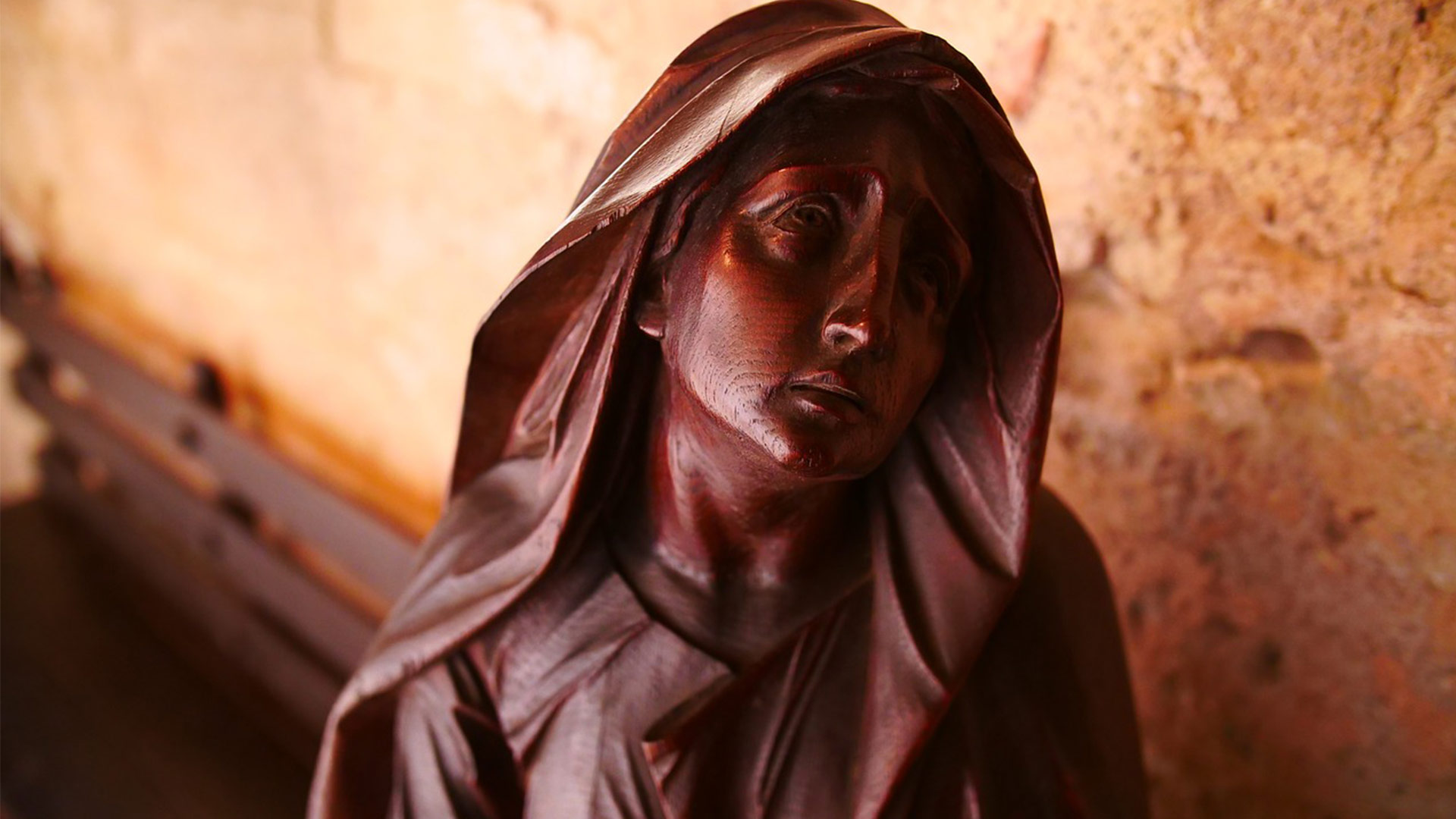Throughout this Advent season, we have been listening to the story of Mary and reflecting on the disruptive in-breaking of God in the midst of humanity’s pain and darkness. On this final Sunday before Christmas, Gabes Torres (MA in Theology & Culture, ‘18), Program Assistant for The Allender Center, invites us to once again consider this surprising story. Gabes shares a stunning song and written reflection, reminding us that the narrative of Advent should not be contained to these four weeks alone, but that it should fuel our ongoing work as people of radical and persistent hope in a world that so desperately needs it.
“Mary, Did You Know?” is a song that will never end up on my list of favorite Christmas carols. When I was younger, I remember hearing people from my faith community rave about how the lyrical content held a spirit of anticipation for a Messiah who will come to save all creation. I, however, do not share in this same appreciation. As a songwriter, I listen to this song—composed by a male Christian songwriter in Texas—and all I hear is how it repetitively suggested that Mary didn’t know who her son was, or that we, 21st century people, have better insight about the extent of his healing and grace.
A part of me is convinced that not only did Mary know—she was sure about what she had been invited into. Otherwise, she would not have gathered the receptivity and courage to respond: “‘I am the Lord’s servant. May your word to me be fulfilled.”
I have lately been talking with friends about the theme of suffering. A question that came up was, “When were the times we were open to suffering, instead of trying to avoid it?”
My answer was immediate.
As an advocate and therapist-in-training for victims of racial trauma and marginalization, this type of work often leaves me susceptible to a wide variety of social shame and harm, especially with our currently aggravated political climate. I’ve had experiences when people responded negatively to my work, claiming that racism ended after the Civil Rights act, or that there’s no such thing as white privilege. This cause has also cost me friendships, my sense of safety and belonging in many Christian communities, and vocational opportunities that guaranteed a more secure future. But I choose to persist, motivated by awareness of an enduring Jim Crow in the form of mass incarceration, or the news about a person of color experiencing post-traumatic stress symptoms even though she was not a direct victim of the generational harm her body is reacting to.
When I compare the dark state of our world today with an imagination for the full liberation and flourishing that every single person on this earth could be experiencing, I become undone. I persist because of the hope that we could be more—more free, more dignified, and more loving towards one another. I hope for a time when the wide gap between who we are today and who we are meant to become finally closes. I say yes to a costly call only when I know its worth.
With Mary, I picture a teenager struggling to explain a supernatural conception to Joseph and her community. She was aware of the likelihood that no one would believe her right away, or that no one would believe her at all. This leaves her vulnerable to public shame and the accusation of living immorally. Yet her continual obedience was compelled not by fear, but by hope—a hope for the world to be so much more than it was, and that the Christ Child who resides temporarily in her young body will bring universal peace and rest after generations of chaos and despair.
“Her continual obedience was compelled not by fear, but by hope—a hope for the world to be so much more than it was.”
She might not have been fully aware of the detailed parts of her son’s coming miracles, nor the degree of his humility and obedience to God, but she said yes to a costly call of pain and peril ahead—for not only did Mary know, but she was sure of its worth.
In this time of hostility and collective unrest, may we reassess the health of our hope, and with this, I pray:
Holy Light,
Just as your mother, we ask that you renew our imagination of the immeasurable scope
and depth of your redemption.
May we live a life that not only embodies good news, but is also thrilled by it.
May you move our hearts to gaze at wonder with openness.
May you fortify our spirit to discern whether we walk in fear or in hope.
You are well aware of the darkness of our night,
The volume of our cries,
The constancy of our questions and doubts.
So may you give us a radiant assurance that we are favored and loved.
Our eternal belonging and rest are coming closer by the day.
Until then, may we ease in the mystery of your fierce and gentle ways,
You have always been with us.
Closer than breath, you are with us.


